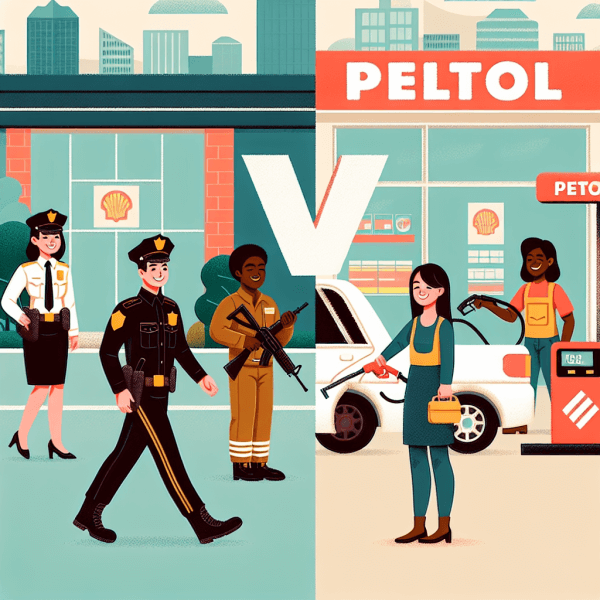Introduction
The English language is rich with words that may sound similar but have distinctly different meanings. Two such words are 'patrol' and 'petrol.' While they are phonologically similar, their usage, spelling, and semantic fields are quite diverse. This essay aims to explore these differences in detail.
Definitions
'Patrol'
The term 'patrol' functions primarily as a verb and a noun. As a verb, it refers to the action of walking or traveling around an area to monitor, oversee, or guard against potential threats or activities. As a noun, it describes the act of patrolling as well as a group or unit assigned to do so.
'Petrol'
'Petrol,' on the other hand, is a noun that refers specifically to a type of fuel used primarily in combustion engines. The term is predominantly used in British English, while 'gasoline' is the equivalent term in American English. Petrol is derived from the French word 'pétrole,' which means 'rock oil' or 'mineral oil.'
Contextual Usage
Examples of 'Patrol'
- As a verb: "The security team will patrol the premises every hour to ensure safety."
- As a noun: "The police patrol was quick to respond to the reported incident."
Examples of 'Petrol'
- "I need to stop and fill the tank with petrol before we head out on our road trip."
- "The price of petrol has risen sharply in recent months, affecting all motorists."

Phonetic Comparison
Phonetically, 'patrol' is pronounced /pəˈtroʊl/, while 'petrol' is pronounced /ˈpɛtrəl/. The difference lies primarily in the vowel sounds and syllable emphasis. The first syllable of 'patrol' is unstressed, leading to a softer sound, while 'petrol' places emphasis on the initial syllable.
Cultural and Regional Variations
It is noteworthy that cultural and regional variances also influence how these words are used and understood. For example, 'petrol' is commonly used in countries such as the United Kingdom, Australia, and many parts of Asia. In contrast, in the United States, 'gasoline' or 'gas' is the preferred term, and 'petrol' might be less familiar to native speakers. Conversely, 'patrol' retains its meaning across various English dialects.
Conclusion
In summary, while 'patrol' and 'petrol' may sound alike, they navigate entirely different semantic landscapes. Understanding these distinctions in meaning, context, and usage helps enhance clarity in communication. It is essential to recognize such differences to avoid potential misunderstandings, especially in written and verbal communication in a global context.








Have a discussion about this article with the community:
Report Comment
We're doing our best to make sure our content is useful, accurate and safe.
If by any chance you spot an inappropriate comment while navigating through our website please use this form to let us know, and we'll take care of it shortly.
Attachment
You need to be logged in to favorite.
Log In